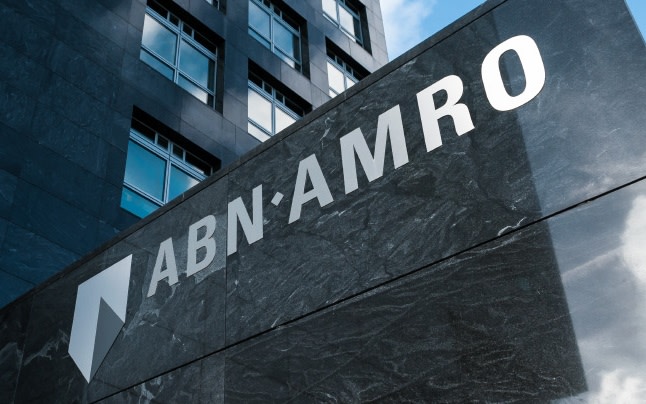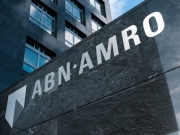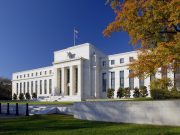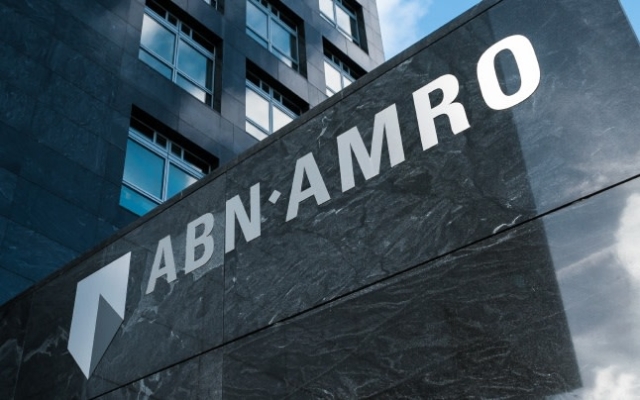Netherlands Central Bank DNB Fines ABN AMRO Bank $17 Million for Awarding Bonuses to 2nd-Tier Management from 2016 to 2024 Despite Bonus Ban (2nd-Tier Management) Imposed in 2015 for Receiving State Aid in 2012
20th June | Hong Kong
Netherlands central bank De Nederlandsche Bank (DNB) has fined ABN AMRO Bank $17 million for awarding bonuses to 2nd-tier management from 2016 to 2024 despite bonus ban (2nd-tier management) imposed in 2015 for receiving state aid in 2012. Announcement (19/6/25): “On 10 June 2025, De Nederlandsche Bank (DNB) imposed a €15 million fine on ABN AMRO Bank N.V. (ABN AMRO) for non-compliance with the bonus ban. Summary 1) In 2012, banks that receive state aid were prohibited by law from awarding bonuses to their Executive Board. In 2015, this ban was extended to include the second-tier management of the institution. 2) ABN AMRO, which is partly owned by the Dutch State, awarded bonuses to officials in seven second-tier management positions between 2016 and 2024, acting in contravention of this ban. 3) ABN AMRO has been fined for awarding these bonuses … State aid – During the financial crisis, several financial institutions received support from the Dutch State. A bonus ban was imposed on these institutions, which applies as long as the state aid is in place, as well as a ban on increasing fixed salaries beyond the annual collective wage increase. The aim was to prevent state aid, or income earned thanks to that state aid, from being paid out in the form of bonuses. The ban applies to the institutions’ top management levels. This includes the members of the Executive Board as well as officials whose activities could materially affect the institution’s risk profile, also referred to as second-tier management officials. Non-compliance – Financial institutions receiving state aid are not allowed to award or pay out bonuses. ABN AMRO was nationalised in 2008 and received state aid in that capacity. Since 2015, the Dutch State has been gradually phasing out its shareholding. DNB found that ABN AMRO awarded and paid bonuses to officials in seven second-tier management positions in the period from 2016 to 2024. The total amount of awarded bonuses exceeds €1.5 million. In awarding and paying out these bonuses, ABN AMRO has acted in contravention of the bonus ban. In addition, DNB’s examination revealed that one official had received an increase in fixed salary in two consecutive years of 11.4% and 28.8% respectively, which was more than the permissible collective wage increase of 1.5% and 2.5% respectively … … This act of non-compliance damages society’s confidence in financial institutions, especially given the fact that banks have an important societal role in ensuring a smoothly functioning economy and society. Given this societal role and the sensitivity of the subject of bonuses, DNB considers the non-compliance to be grave. A professional market participant and licensed bank such as ABN AMRO may be expected to be aware of the relevant laws and regulations and to comply with them. It may also be expected not to let the non-compliance continue after it has been made aware of it, and to act promptly to restore compliance with the ban. The supervisory authority specifically pointed out to ABN AMRO that awarding and paying bonuses to second-tier management officials is prohibited. ABN AMRO then initially halted the payment of bonuses. However, at a later date, ABN AMRO decided not only to resume paying out the bonuses, but also to award a new tranche of bonuses. In doing so, ABN AMRO deliberately allowed its non-compliance with the bonus ban to continue for an extended period of time and went against the supervisory authority’s explicit instructions. DNB strongly condemns ABN AMRO’s course of action. ABN AMRO has confirmed to DNB that it has now adjusted the scope of its application of the bonus ban, and no longer pays out bonuses to second-tier management officials. Fine – The fine for ABN AMRO’s non-compliance has been set at €15 million, in accordance with the DNB (in Dutch). In determining the amount of the fine, DNB considered relevant that the non-compliance is severe and persistent, and that the degree of culpability is high. It was also taken into account that ABN AMRO is a large institution with considerable resources. On balance, and taking into account these circumstances, a fine of €15 million is appropriate and warranted. Objection – ABN AMRO has six weeks from receipt of notification of the fine to lodge an objection. Read the full decision below (in Dutch), excluding confidential information.” In 2025 May, the Dutch government (NLFI, Stichting administratiekantoor beheer financiële instellingen) decreased shareholding in $20 billion Dutch bank ABN AMRO to around 30%. Dutch Government had bailout ABN AMRO in the 2008 Financial Crisis. ABN AMRO market value is at $20 billion, with share price +48.1% YTD, +37.1% in last 12 months & +234.5% in last 5 years. In 2025 March, Dutch bank ABN AMRO & the Dutch central bank (De Nederlandsche Bank) have different views on bonus ban, with ongoing formal discussions with the Dutch central bank on possible violations of remuneration restrictions. The Dutch central bank had imposed pay restrictions on ABN AMRO after the 2008 bailout. In 2022, French bank BNP Paribas had approached the Dutch government to buy the 57% state-owned bank ABN AMRO. BNP Paribas is reported to be interested in acquiring ABN Amro retail and corporate banking business in Northern Europe. Since the 2008 financial crisis, ABN Amro had been majority owned by the Dutch government, which was publicly listed in late 2015 and the Dutch government selling down its stake in the Dutch Bank. ABN AMRO has a market capitalisation of over $5.6 billion (24/6/22) while BNP Paribas has a market capitalisation of around $62 billion (24/6/22). In 2024 May, Dutch bank ABN AMRO clients data had been leaked after supplier AddComm was attacked by ransomware. AddComm distributes documents & tokens physically & digitally to ABN AMRO clients & employees. Earlier in 2024 May, Dutch Bank ABN AMRO announced to buy Germany private bank Hauck Aufhäuser Lampe with $28 billion AUM (EUR 26 billion, Assets under Management) for $983 million (EUR 672 million) from China Fosun International. The combined group AUM will be $76 billion (EUR 70 billion ) with ABN AMRO Germany Bethmann Bank existing $47 billion AUM (EUR 44 billion), and the group to become Germany 3rd largest private bank after the acquisition. In 2016, Fosun International bought Hauck & Aufhauser and merged with Bankhaus Lampe. Fosun International is co-founded by China billionaire Guo Guangchang.
“ Netherlands Central Bank DNB Fines ABN AMRO Bank $17 Million for Awarding Bonuses to 2nd-Tier Management from 2016 to 2024 Despite Bonus Ban (2nd-Tier Management) Imposed in 2015 for Receiving State Aid in 2012 “
Dutch Government (NLFI) Decreased Shareholding in $20 Billion Dutch Bank ABN AMRO to Around 30%, Dutch Government Bailout ABN AMRO in 2008 Financial Crisis, Current Market Value at $20 Billion, Share Price +48.1% YTD, +37.1% in Last 12 Months & +234.5% in Last 5 Years

21st May 2025 – The Dutch government (NLFI, Stichting administratiekantoor beheer financiële instellingen) has decreased shareholding in $20 billion Dutch bank ABN AMRO to around 30%. Dutch Government had bailout ABN AMRO in the 2008 Financial Crisis. ABN AMRO current market value is at $20 billion, with share price +48.1% YTD, +37.1% in last 12 months & +234.5% in last 5 years. Announcement (20/5/25): “ABN AMRO Bank N.V. (ABN AMRO) has been informed by NLFI (Stichting administratiekantoor beheer financiële instellingen) that it has reduced its stake in ABN AMRO to below one-third. NLFI is currently executing its trading plan, as announced on 15 October 2024, to reduce its stake in ABN AMRO to approximately 30%. With NLFI’s stake falling below one-third, a number of rights of NLFI in the Relationship Agreement will no longer apply. Among others, NLFI will no longer have prior approval rights for (i) any issuance of (or granting of rights to acquire) shares, or (ii) for investments or divestments by ABN AMRO or any of its subsidiaries with a value exceeding 10% of ABN AMRO’s equity. The Relationship Agreement otherwise remains in full force and effect.” In 2025 March, Dutch bank ABN AMRO & the Dutch central bank (De Nederlandsche Bank) have different views on bonus ban, with ongoing formal discussions with the Dutch central bank on possible violations of remuneration restrictions. The Dutch central bank had imposed pay restrictions on ABN AMRO after the 2008 bailout. In 2022, French bank BNP Paribas had approached the Dutch government to buy the 57% state-owned bank ABN AMRO. BNP Paribas is reported to be interested in acquiring ABN Amro retail and corporate banking business in Northern Europe. Since the 2008 financial crisis, ABN Amro had been majority owned by the Dutch government, which was publicly listed in late 2015 and the Dutch government selling down its stake in the Dutch Bank. ABN AMRO has a market capitalisation of over $5.6 billion (24/6/22) while BNP Paribas has a market capitalisation of around $62 billion (24/6/22). In 2024 May, Dutch bank ABN AMRO clients data had been leaked after supplier AddComm was attacked by ransomware. AddComm distributes documents & tokens physically & digitally to ABN AMRO clients & employees. Earlier in 2024 May, Dutch Bank ABN AMRO announced to buy Germany private bank Hauck Aufhäuser Lampe with $28 billion AUM (EUR 26 billion, Assets under Management) for $983 million (EUR 672 million) from China Fosun International. The combined group AUM will be $76 billion (EUR 70 billion ) with ABN AMRO Germany Bethmann Bank existing $47 billion AUM (EUR 44 billion), and the group to become Germany 3rd largest private bank after the acquisition. In 2016, Fosun International bought Hauck & Aufhauser and merged with Bankhaus Lampe. Fosun International is co-founded by China billionaire Guo Guangchang.
Dutch Bank ABN AMRO & Dutch Central Bank Have Different Views on Bonus Ban, Ongoing Formal Discussions with Dutch Central Bank (De Nederlandsche Bank) on Violations of Remuneration Restrictions, Pay Restrictions Imposed after 2008 Bailout
17th March 2025 – Dutch bank ABN AMRO & the Dutch central bank (De Nederlandsche Bank) have different views on bonus ban, with ongoing formal discussions with the Dutch central bank on possible violations of remuneration restrictions. The Dutch central bank had imposed pay restrictions on ABN AMRO after the 2008 bailout. In 2022, French bank BNP Paribas had approached the Dutch government to buy the 57% state-owned bank ABN AMRO. BNP Paribas is reported to be interested in acquiring ABN Amro retail and corporate banking business in Northern Europe. Since the 2008 financial crisis, ABN Amro had been majority owned by the Dutch government, which was publicly listed in late 2015 and the Dutch government selling down its stake in the Dutch Bank. ABN AMRO has a market capitalisation of over $5.6 billion (24/6/22) while BNP Paribas has a market capitalisation of around $62 billion (24/6/22). In 2024 May, Dutch bank ABN AMRO clients data had been leaked after supplier AddComm was attacked by ransomware. AddComm distributes documents & tokens physically & digitally to ABN AMRO clients & employees. Earlier in 2024 May, Dutch Bank ABN AMRO announced to buy Germany private bank Hauck Aufhäuser Lampe with $28 billion AUM (EUR 26 billion, Assets under Management) for $983 million (EUR 672 million) from China Fosun International. The combined group AUM will be $76 billion (EUR 70 billion ) with ABN AMRO Germany Bethmann Bank existing $47 billion AUM (EUR 44 billion), and the group to become Germany 3rd largest private bank after the acquisition. In 2016, Fosun International bought Hauck & Aufhauser and merged with Bankhaus Lampe. Fosun International is co-founded by China billionaire Guo Guangchang.
Dutch Bank ABN AMRO Buys Germany Private Bank Hauck Aufhäuser Lampe with $28 Billion AUM for $983 Million from China Fosun International, Combined Group AUM of $76 Billion with ABN AMRO Germany Bethmann Bank Existing $47 Billion AUM & Becomes Germany 3rd Largest Private Bank
29th May 2024 – Dutch Bank ABN AMRO has announced to buy Germany private bank Hauck Aufhäuser Lampe with $28 billion AUM (EUR 26 billion, Assets under Management) for $983 million (EUR 672 million) from China Fosun International. The combined group AUM will be $76 billion (EUR 70 billion ) with ABN AMRO Germany Bethmann Bank existing $47 billion AUM (EUR 44 billion), and the group to become Germany 3rd largest private bank after the acquisition. In 2016, Fosun International bought Hauck & Aufhauser and merged with Bankhaus Lampe. Fosun International is co-founded by China billionaire Guo Guangchang. ABN AMRO (28/5/24): “Today, ABN AMRO announces it has reached an agreement with Fosun International to acquire Hauck Aufhäuser Lampe (“HAL”), a leading German private bank. With the acquisition of HAL, Bethmann Bank – ABN AMRO’s private banking arm in Germany – will become one of the largest providers of banking services for wealthy private clients, family businesses and institutional clients in Germany. The subsidiaries of HAL that provide AIFM/Manco and Fund Administration services will not be part of the acquisition. These entities and HAL have closed a co-operation agreement to continue offering the successful One-Stop-Shop service offering in the market.”
Robert Swaak, CEO of ABN AMRO: “This is a rare opportunity to add scale to our German activities. We are delighted to have reached this agreement. HAL is a long-standing leader in wealth management and has a very strong fit with ABN AMRO, both culturally and geographically. We share the desire to deliver the best individual solution to our clients. The proposed acquisition will further strengthen our position and offer employees of the combined group the opportunity to play a driving role in the consolidating German market. I look forward to working with the HAL team in realising our shared ambition.”
Choy van der Hooft-Cheong, Chief Commercial Officer Wealth Management at ABN AMRO: “I am very pleased with the acquisition of HAL and I am looking forward to meeting our new colleagues soon. This acquisition will enable us to expand and improve our current product and services offering to both individual and business clients in the important German private banking market.”
Michael Bentlage, CEO of HAL: “I would like to pay tribute to our talented teams, whose efforts have greatly supported the fantastic development of the bank in the last 10 years. The proposed combination with ABN AMRO Germany will strengthen further the position in the market and gives the combined bank more opportunities for growth through even broader products and services to our clients.”
Accelerating our strategy – The acquisition of HAL will strengthen our top 3 position in wealth management in Germany, the largest private banking market in Europe, with combined Assets under Management of around EUR 70 billion. HAL’s private banking activities and German footprint are highly aligned and fit extremely well with ABN AMRO’s existing client base and geographical coverage. The transaction will strengthen our Wealth Management, Asset Management and Entrepreneur & Enterprise (E&E) activities. In addition, ABN AMRO enters the asset servicing business, offering custody services, especially for illiquid assets. While Bethmann Bank is one of the largest private equity providers for high net worth clients, HAL has made a name for itself among institutional investors and asset managers with its One Stop Shop, Depository Solutions and Asset Servicing. This complementary offering will be available to all clients in the future. Furthermore, HAL’s Investment Banking services will join forces with ABN AMRO Germany to complement our Corporate Banking ambition in Northwestern Europe. Both banks utilise an E&E proposition, targeting companies and their founders through an integrated wealth and corporate banking offering. HAL has built up significant expertise and coverage of the German midcap sector, which will complement our Corporate Banking ambition in Germany. Acquisition of HAL’s asset-light, strong fee income stream fits well with our strategy to broaden the non-NII income base, as well as complementing our organic growth.
Strengthening financial profile – ABN AMRO has agreed to purchase HAL from Fosun International for a consideration based on HAL’s shareholders equity as of the closing date. ABN AMRO will pay EUR 672 million at closing, which will be adjusted after closing based on audited financials. The acquisition of HAL is expected to contribute around EUR 26 billion in Assets under Management and EUR 2 billion in loans. The combination of HAL and Bethmann Bank will create a leading private bank in Germany. HAL has been consistently profitable in past years and its capital is well above regulatory minima. The overall impact of the acquisition on ABN AMRO’s CET1 ratio is expected to be approximately 45 bps based on Q1 2024 results and following carve-out of the fund administration business. Around EUR 60 million of pre-tax run-rate cost synergies are expected to be achieved over a three-year horizon net of dyssynergies. Moreover, some upside from revenue synergies is expected. The transaction is expected to have a pro-forma run-rate return of equity (ROE) uplift of around 0.4% based on Q1 2024 results.
Dutch Bank ABN AMRO Clients Data Leaked after Supplier AddComm Attacked by Ransomware, AddComm Distributes Documents & Tokens Physically & Digitally to Clients & Employees
27th May 2024 – Dutch bank ABN AMRO clients data had been leaked after supplier AddComm was attacked by ransomware. AddComm distributes documents & tokens physically & digitally to ABN AMRO clients & employees. ABN AMRO (24/5/24): “Last week, one of ABN AMRO’s suppliers, AddComm, was attacked by ransomware. As a result, unauthorised parties may have obtained access to data of a limited number of ABN AMRO clients. We will contact the clients who may be affected in writing. At the moment, there are no indications that unauthorised parties have in fact used the data of ABN AMRO clients. ABN AMRO’s systems were not affected. AddComm engaged external cybersecurity experts as soon as it discovered the ransomware and then notified its customers, one of which is ABN AMRO. ABN AMRO is in close contact with AddComm and has stopped using its services for the time being. External cybersecurity experts are currently investigating exactly what data has been stolen at AddComm. We are writing to customers whose data may be involved in this attack. ABN AMRO has reported the data breach to the Dutch Data Protection Authority and regulators. AddComm is preparing to file a police report.”
Sign Up / Register
Caproasia Users
- Manage $20 million to $3 billion of assets
- Invest $3 million to $300 million
- Advise institutions, billionaires, UHNWs & HNWs
Caproasia Platforms | 11,000 Investors & Advisors
- Caproasia.com
- Caproasia Access
- Caproasia Events
- The Financial Centre | Find Services
- Membership
- Family Office Circle
- Professional Investor Circle
- Investor Relations Network
Monthly Roundtable & Networking
Family Office Programs
The 2025 Investment Day
- March - Hong Kong
- March - Singapore
- July - Hong Kong
- July - Singapore
- Sept- Hong Kong
- Sept - Singapore
- Oct- Hong Kong
- Nov - Singapore
- Visit: The Investment Day | Register: Click here
Caproasia Summits
- The Institutional Investor Summit
- The Investment / Alternatives Summit
- The Private Wealth Summit
- The Family Office Summit
- The CEO & Entrepreneur Summit
- The Capital Markets Summit
- The ESG / Sustainable Investment Summit








































